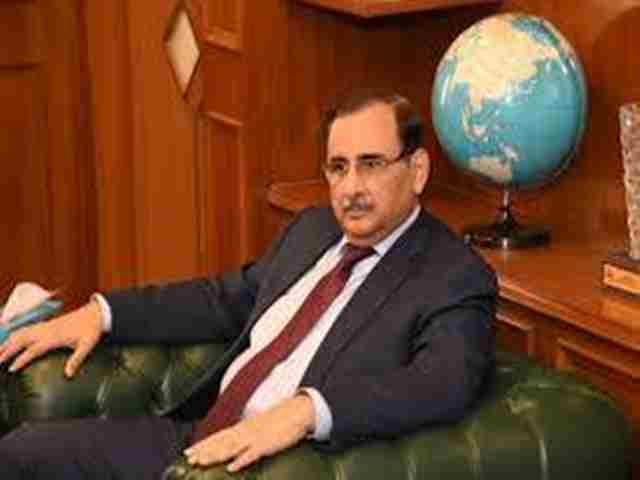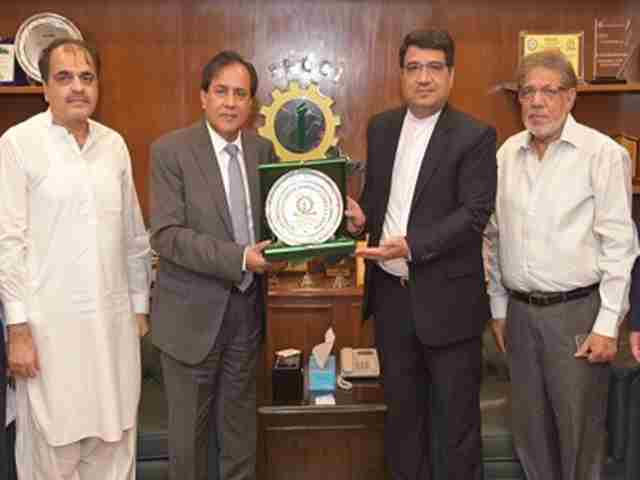The Businessmen Panel (BMP) of Federation of Pakistan Chambers of Commerce and Industry’s (FPCCI) has rejected hike in prices of petroleum products and electricity.
BMP Chairman Mian Anjum Nisar, while strongly reacting to increase in electricity base tariff by Rs 1.39 per unit for the second time in one year, along with exorbitant hike of Rs10.49 per litre in petrol prices, has said that the government has declared another minibudget by burdening the trade and industry with billions of rupees new taxes in the form of huge increase in electricity, gas and petroleum rates.
FPCCI’s Businessmen Panel Chairman Mian Anjum Nisar observed that the government has raised the petroleum product price for the third consecutive time in one month period, lifting it by more than Rs20 per litter to Rs137.79 per litre, as the authorities hiked the oil prices by Rs4.50 on Sept 16, then by Rs5.50 on Oct 1 and now by Rs10.49 per litter on Oct 16, 2021.
“It is unfortunate that the authorities had reduced the petroleum rates just by Rs1.50 one and a half months back on Sept 1, 2021,” he added.
Moreover, the federal government has announced to increase electricity base tariff by Rs 1.39 per unit across the country from Nov 1, while it had already enhanced the base power tariff by Rs 1.95 per unit in January this year along with quarterly and monthly electricity price hike under fuel adjustment formulas, totaling the power price hike to over Rs5 per unit, he claimed.
He said that the National Electric Power Regulatory Authority (NEPRA) has allowed an increase of Rs1.65 per unit in power tariff, under quarterly adjustments, which will empower the distribution companies to collect Rs173 billion from consumers in the next one year. He said that the trade and industry were expecting some relief at the expiry of early adjustments of Rs1.62 per unit on Sept 30, 2021, however, the NEPRA announced the transfer of new adjustments equal to Rs1.65 per unit to the consumers with effect from Oct 1, 2021.
FPCCI former president rejected the increase in power prices along with the periodic hike in rates of petroleum products. He said the increase in power and fuel prices will increase the cost of production for the industrial section which in turn will impact the ease of doing business and exports. This will ultimately hit the economy as envisioned by the Prime Minister, he maintained.
Condemning the government’s move, the ruling group chief of apex chamber said the increase was being done to meet the conditions of the International Monetary Fund.
It is unfortunate that Minister for Finance Shaukat Tarin had pledged a day earlier – on October 14, 2021 in Washington DC while attending the annual meeting of IMF – that electricity tariff will not be increased.
Rejecting the latest increase in electricity and petroleum prices, he termed it a cruel decision by the authorities, which will bring the economy to a grinding halt. Millions more will be unemployed while millions are facing abject poverty and starvation. Imposition of 17 per cent sales tax on exempted items, increase in petrol, electricity prices is not just for the economy, he said.
He further said the government had dropped a new bomb on the trade and industry at a time when inflation and unemployment was at an all-time high and the economy was facing total collapse because of government’s incompetence.
The government blindly acted on the terms of the IMF and did not bother to care about the public interest. He warned that severe inflation was creating a serious problem of economic viability of the country which was not a good omen for Pakistan.
Businessmen Panel Chairman Mian Anjum Nisar said the constant increases in energy rates on the behest of the International Monetary Fund (IMF) would make the Pakistani products uncompetitive in the international market.
He opposed the government’s move of raising power tariff by more than Rs5 per unit, besides lifting rates of petroleum products twice a month to qualify for the revival of the stalled $6 billion IMF loan program, leading the economy towards point of no return due to interference of the International Monetary Fund.
Mian Anjum Nisar said it was imperative to make power and gas tariffs for domestic, as well as export sectors compatible with the tariff being applied in regional and neighboring countries.


